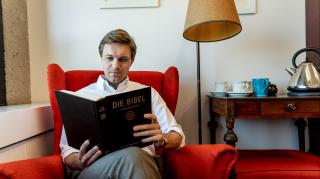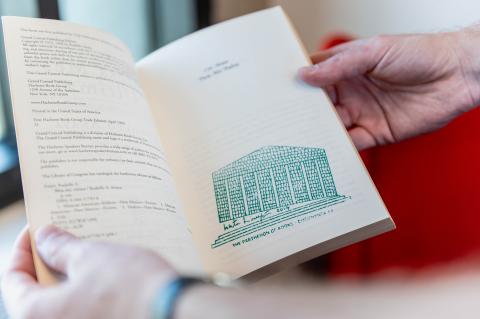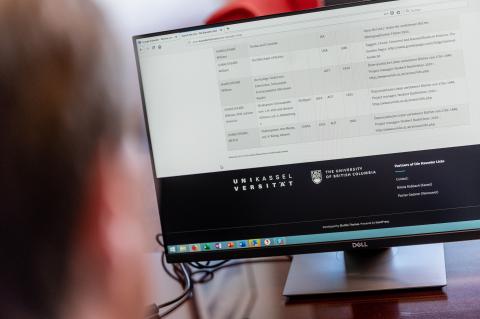Florian Gassner and his quest to define censorship



If a book has been purposefully removed from a library, does that mean censorship has occurred? What if a publisher decides not to publish a book again? Does that mean people are being intentionally prevented from reading it?
It’s these questions, and more, that Florian Gassner, Senior Instructor of German and Central, Eastern and Northern European Studies from the Faculty of Arts had to grapple with, in a recent project to unearth books that have been, or still are, banned, and catalogue them in a searchable online database.
This initiative came about on the heels of a collaboration with documenta 14 in 2017–the exhibition of contemporary art that takes place in Germany every five years–while Florian was on a guest professorship at the University of Kassel. He was one of two academic consultants to work with artist Martha Minujín to identify censored books, so she could use them to cover a scale replica of the Parthenon in Athens, which was built of scaffolding in Kassel’s main square.
Publishers and members of the public from all over the world donated books to the project that they believed had been censored at one time or another, and Florian’s job, along with his colleague Nikola Roßbach and the team of students they recruited to the project, was to verify that censorship took place.
However, with no central database of censored books, the team had to determine what had been censored themselves. This was no easy feat, as Florian explains: “The question of what qualifies as censorship is extremely complex. Traditionally, we might assume the process involved a group of people sitting around in a smoky room, drawing up a list of books to ban and storing that list in a filing cabinet.”
The question of what qualifies as censorship is extremely complex. Traditionally, we might assume the process involved a group of people sitting around in a smoky room, drawing up a list of books to ban and storing that list in a filing cabinet.
Florian Gassner


The reality though, is somewhat different. Florian continues: “Take the German Democratic Republic (GDR) as an example. Officially, there was no censorship in the GDR. Books may have become intentionally unavailable, because ‘the printer ran out of paper’ or because the public libraries chose not to stock them. But not because there was central command to ban them. So, it is surprisingly difficult to prove a book was censored in the GDR, even though there were lots of books that were unavailable to the public there.”
You may be intrigued to learn that one of the most popular donations to the exhibition was Harry Potter.
“This book was removed from school libraries in the United States, because parents disagreed with having this book available to their children,” says Florian. “Of course, this raises the interesting question of whether or not this is censorship or parents exercising their right to decide what their children are exposed to. After much debate, we agreed this qualified as censored material. This project really challenged our understanding of what censorship is.”
With 68,000 books used in the installation and a list of 100,000 books verified as being censored, Florian and Nikola decided to create the one thing that had been missing in the project: a searchable database of these books. The finished product is Die Kasseler Liste, a website where you can look up books that have, or are still, banned. The database has since grown to 120,000 books, and that number is expected to rise, since Florian and Nikola have only scratched the surface of censored works. Contributions continue to be invited–anyone who wants to suggest a book for the database can do so on the website.
Written by Megan Czerpak, UBC Internal Communications
From a small town outside of Munich originally, Florian moved to Canada in 2013 to do his PhD at UBC, in German/Russian cultural relations. He is an active member of UBC’s German community, organizing weekly German singing hours and conversation hours for students, faculty and staff, and working as a German Undergraduate Advisor, in addition to his teaching responsibilities.
Find the latest news, updates, events, and useful dates from across UBC, curated for faculty and staff by Internal Communications.
Access a library of resources from multiple UBC websites, all in one place.